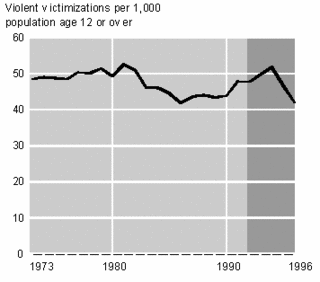When I was a kid growing up in Montana one of our neighbors, Blaze Dilulu, would convert old refrigerators to fish smokers. They might not have looked all that great sitting out in the back yard but they worked. Blaze Dilulu smoked some good fish in those days. Interesting that Blaze (his real name as far as I knew) was a firefighter; but I digress.
We may be able to take a lesson from Blaze when deciding what to do with our automobiles in the not too distant future.
Note: I'm still thinking that lawnmower engine conversion kit that turns our 12 miles per gallon
gas guzzler into a 12 mile per hour fuel sipper isn't that bad an idea. You could drive it in a parade, or up and down main street to show off to your friends, and if you didn't live too far away still use it to pick up the kids at school; or for a quick, make that slow leisurely, trip to Walmart.
____________________________The End of Cheap Oil written by Colin J. Campbell and Jean Laherrere appeared in Scientific American Magazine in March of 1998.
Seven years later, James Howard Kunstler picks up the thread in
this March 2005 article from Rolling Stone Magazine based on his book "
The Long Emergency
- Surviving the End of the Oil Age, Climate Change, and Other Converging Catastrophes of the Twenty-first Century".
Quoting from the Kunstler article,
"Carl Jung, one of the fathers of psychology, famously remarked that "people cannot stand too much reality."
I recommend reading the articles. Not everyone of course would agree with James Kunstler's view of reality, but I'd read the article nonetheless. He is a sort of a combination writer performance artist who's goal is to shake people up.
One of his earlier books
Geography of Nowhere
is a rant/discussion of strip malls, architectural ugliness, dependence on automobiles, sprawl, surburbs and non-sustainable lifestyles. I only mention that because he has a desire to see these things change. His "we're going to hell in a handbasket approach to the oil shortage" may be colored somewhat by his desire to see some of the things cheap oil allowed (see above) go away.
I would think even very reasonable people can get something out of the 1998 Scientific American article, which is saying many of the same things, in a less inflammatory way.
Some combination of greed, optimism, self delusion and ignorance probably got us here. Maybe it's time to wake up the sleeping masses..or wait until gas is 6 bucks a gallon and a gallon of milk the same.
Jay Forrester and other experts in
System Dynamics have been talking about the conditions that got us here for fifty years or so. His students Dennis and Donella Meadows and others wrote about the
Limits to Growth
35 years ago. Jimmy Carter was singing this song in the 70's but people didn't like to hear it. The WTO protesters were voicing concerns about some of the reasons for us being in this predicament five years ago...and yet here we are in 2005 - fat, dumb and happy (I'm speaking personally).
The peak of easily extractable oil is upon us, we are own the downside of that bell-curve and the ride may be a wild one.
Alternative energy sources are not developed to a point that would even come close to replacing petroleum.
Our planning (lack of planning) has made the problem, as one of my professors use to say - deliciously difficult.
(a) we sprawled out our cities and made people dependent on automobiles
(b) we covered up farmland with that sprawl
(c) we allowed agribusiness to destroy whatever small farms were left
(d) rather than rotating crops or resting soil, we depend on giant monocultural farms that are heavily dependent on petroleum based fertilizers and pesticides.
(e) our food supply system depends on petroleum for transportation of cheap food produced in distance places to other states or nations, for sale and consumption.
(f) we continued to build less and less fuel efficient cars, even after the 1973 warning shot aka "the
oil crisis" when OPEC shut off the spigot for awhile.
(g) our Walmart model of consumption is predicated on cheap oil. Buying from the cheapest producer forces us to import products from distant places with cheap labor.
(h) we allowed our rail systems (one of the most efficient ways of transporting goods) to deteriorate.
(i) we made very little progress in improving mass transportation while continuing to allow unplanned living places that lack the basic infrastructure (schools, churches, stores, common green space, sidewalks, parks) that make a liveable community.
(j) we mass consumed as much as we could as fast as we could with little thought for recycling, reuse, downsizing, or otherwise addressing our
affluenza.
(k) somehow we missed the point that the Chinese not only were coming out of their centuries long sleep but were quickly becoming a billion plus set of people who saw what we have and wanted a
piece of it.
____________________________I'm not convinced it's too late...it's never too late. We are a resourceful people. There will probably be some quality of life enhancements as we replan our society to use available non-renewable energy sources more wisely. Return of small local farms, appreciation for nature, decreased greenhouse gas, more livable communities and a general decline in our use of the Earth's resources.
If I was a young person I'd be thinking about the future when it comes to occupational, housing and transportation choices. I'm sure most young people do just that...walking, riding bikes, wanting to live near where the action is (in the city not the burbs), or maybe on a nice small mostly self-sustaining farm and understanding the - consume at any cost model is not going to go on forever.
____________________________On the lighter side.....
For us old
fogey's though, Fran Lebowitz says it best in this little video clip,
Sorry We Ate All The Cookies; as she says - we used all the oil, we will use all the social security money, took all the drugs and had all the sex...sorry there's none left for you ;-)














